Deputy Prime Minister Le Thanh Long called for support from international organizations in measles prevention in Vietnam.
Medical news March 14: Efforts to prevent measles in Vietnam
Deputy Prime Minister Le Thanh Long called for support from international organizations in measles prevention in Vietnam.
Strengthening measles prevention in Vietnam
Deputy Prime Minister Le Thanh Long met with the World Health Organization (WHO) Representative in Vietnam, Ms. Angela Pratt, and the United Nations Children's Fund (UNICEF) Representative in Vietnam, Ms. Silvia Danilov. The two sides discussed measures to cooperate in disease prevention, especially measles.
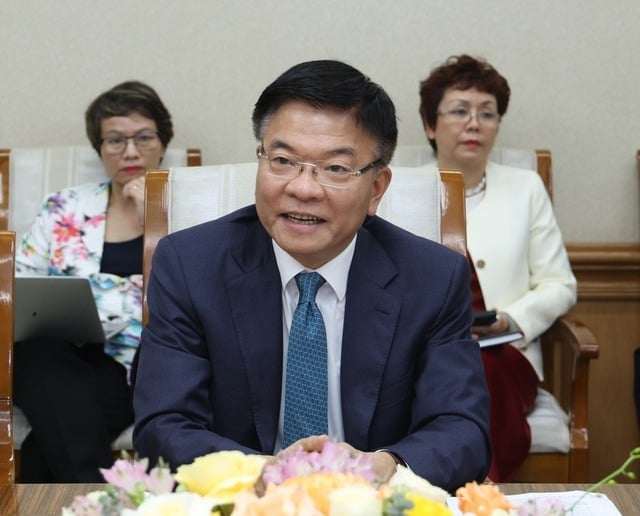 |
| Deputy Prime Minister Le Thanh Long speaks at the meeting. |
At the meeting, representatives of WHO and UNICEF stated that although measles outbreaks are on the decline, the situation is still complicated and should not be taken lightly. Some areas in Vietnam still have gaps in immunity to measles.
Therefore, experts recommend accelerating the vaccination progress, organizing supplementary vaccinations, and catch-up vaccinations for those who have not been vaccinated or have not been fully vaccinated, while expanding the age range for vaccination. In addition, medical facilities also need to be prepared with medical supplies and medicines, and at the same time, prevent cross-infection at treatment facilities.
Ms. Angela Pratt, WHO Representative in Vietnam, affirmed that she is always ready to accompany the Vietnamese health sector in all situations.
Ms. Silvia Danilov, UNICEF Representative in Viet Nam, emphasized the need to mobilize the participation of all levels, sectors and mass organizations in measles prevention and control. At the same time, she also recommended reforming and strengthening the procurement system to ensure adequate medical supplies and vaccines.
Deputy Minister of Health Nguyen Thi Lien Huong also said that "we cannot be subjective" and said that the Ministry of Health will hold an online meeting with localities to promote measles prevention.
Ms. Lien Huong affirmed that measles vaccine is of special importance in preventing epidemics and the Ministry of Health will ensure adequate supply of vaccines for the expanded immunization program.
According to the Ministry of Health, measles vaccination coverage in recent years has been lower than required, especially after the impact of the Covid-19 pandemic, creating an immunity gap in the community. From 2019 to 2024, an estimated 1.4 million children have not been vaccinated or have not received enough doses of measles vaccine.
To date, the supplementary vaccination and catch-up vaccination campaign has only reached about 70% (equivalent to 900,000 children). If we do not promptly review and supplement vaccination for those who have not been vaccinated, the risk of the disease continuing to spread is still very high.
Deputy Prime Minister Le Thanh Long appreciated the cooperation of international organizations and emphasized that Vietnam is well aware of the risks and severity of the measles epidemic.
He expressed his hope that international organizations would continue to provide support, especially in providing vaccines, and affirmed that Vietnam would continue to expand the measles vaccination campaign and implement other preventive measures.
The Deputy Prime Minister requested localities to closely monitor the epidemic situation and report promptly, and mobilize the participation of all levels and sectors in epidemic prevention and control. Localities need to prepare adequate facilities and medical equipment, especially in high-risk areas.
The Deputy Prime Minister also directed to strengthen management measures, review and adjust mechanisms and policies related to funding and procurement mechanisms for medical supplies, and encourage domestic vaccine production.
At the same time, he suggested that the Ministry of Health strengthen closer coordination with WHO, UNICEF and other health organizations to improve Vietnam's health and disease prevention policies.
Accelerating measles vaccination in Quang Nam
The Department of Disease Prevention (Ministry of Health) has just issued Document No. 10/PB-TC to Nha Trang Pasteur Institute and Quang Nam Provincial Department of Health on strengthening measles prevention and control.
According to the Department of Disease Prevention (Ministry of Health), considering the reports of the Center for Disease Control of Quang Nam province on the situation of measles cases and suspected cases, the situation is still unpredictable, the two suspected measles deaths were both at home and the progress of the vaccination campaign to prevent and control measles is still slow.
The Department of Disease Prevention requested the Department of Health of Quang Nam province to speed up the implementation of the 2025 measles vaccination campaign in the area to ensure the completion of 20,000 doses of vaccine allocated to the province before March 25, 2025, prioritizing vaccination for children in districts with many cases of measles or suspected measles, organizing catch-up vaccinations, and catch-up vaccinations for children who have not been vaccinated or have not received enough doses of vaccine.
Based on resources and the situation of measles cases and suspected cases in each locality, appropriate vaccination methods such as mobile vaccination and home vaccination can be applied to quickly cover vaccines and achieve immunity in the community.
Do not let the lack of funding, equipment, medical supplies, or medical staff delay/slow down the progress of measles vaccination; in case of exceeding the authority to resolve these difficulties, it is necessary to immediately report to the Chairman of the Provincial People's Committee for resolution.
In case of need for additional measles vaccine, proactively report to Pasteur Institute Nha Trang for consideration of transfer from provinces in the region; report to the Department of Disease Prevention for consideration and transfer from other provinces.
Strengthen communication work on measles prevention and control in the community, apply diverse forms of propaganda suitable for the people, especially ethnic minorities, to mobilize people to vaccinate their children on schedule, with enough doses of measles vaccine and to seek timely medical examination and treatment when there are signs of measles.
Mobilize the participation of sectors and the community, coordinate medical and social measures in the work of preventing and fighting measles, ensure the right to health protection of children, all children with measles or suspected of having measles not only receive medical care, but also ensure nutrition, keep warm, and prevent the situation of children with measles or suspected of having measles from worsening due to lack of medical care and insufficient nutrition.
Apply social networks, establish technical support groups via social networks, enhance remote medical examination and treatment activities, assign experienced doctors from higher levels to provide technical support to lower levels, with special priority given to commune health stations and village health stations in mountainous areas with difficult access.
Assign village health workers to regularly update and monitor children and families with children suspected of having measles to coordinate with higher-level health facilities to have solutions for care, monitoring and referral when necessary.
In the case of villages in mountainous areas, which take many hours to walk to reach, have backward customs and have many children with or suspected of having measles, a temporary medical team can be set up in the village to speed up vaccination, detect new cases and provide care and treatment for children at home, and transfer them to higher levels when the limited medical conditions are beyond their capacity.
Regarding Nha Trang Pasteur Institute, the Department of Disease Prevention recommends reviewing and synthesizing the allocation and use of 56,060 doses of Measles-Rubella vaccine issued in Decision No. 271/QD-BYT dated January 22, 2025; based on the epidemic situation, the progress of the measles vaccination campaign and the needs of the provinces and cities under the management area to proactively coordinate vaccines in the plan between localities, ensuring timely, safe and effective use.
Continue to guide, urge, inspect and supervise Quang Nam province to organize a timely measles vaccination campaign.
Coordinate with the National Institute of Hygiene and Epidemiology to provide enough measles vaccines for subjects under the Expanded Immunization Program and to provide catch-up and catch-up vaccinations for subjects who have not been vaccinated or have not received enough measles vaccines.
Hanoi: Striving for 100% of communes, wards and towns to meet National criteria on commune health by 2025
The Hanoi Department of Health has just issued Plan No. 991/KH-SYT to implement the National Criteria for Commune Health in 2025 with the goal of 100% of communes, wards and towns in the city meeting the National Criteria for Commune Health.
For communes that have been recognized as meeting the National Criteria on Commune Health, maintain and improve the high quality of the criteria according to the regulations of the Ministry of Health.
In 2024, the city will have 85 more communes, wards and towns eligible for recognition as meeting the National Criteria on Commune Health according to Decision 1300/QD-BYT dated March 9, 2023 of the Ministry of Health, bringing the total number of recognized communes to 573/579 (reaching 98.9%).
The city still has 6 communes and wards in 3 districts that have not been recognized as meeting national criteria on commune health because they have not met the criteria on infrastructure.
The Department of Health has coordinated and proposed the People's Committees of 3 districts to invest in infrastructure and supplement medical equipment for health stations that have not met national criteria on commune health to achieve the goal of having all 579 communes, wards and towns meet national criteria on commune health by 2025.
Along with investing in infrastructure and equipment for health stations, the Department of Health also requested the People's Committees of districts, towns and cities to direct health centers to develop plans for recruitment, training and continuous training to ensure sufficient salaries and human resource structure for health stations according to regulations. There is a policy to attract doctors to work at health stations to gradually improve the quality of medical examination and treatment at the commune level.
The Department of Health also requested the People's Committees of districts, towns and cities to organize and implement health care activities for people in communes, wards and towns such as environmental sanitation, disease prevention; expanded vaccination; ensuring food safety, preventing food poisoning in the area. Implement health programs and activities according to schedule and planned targets, along with improving the capacity of health workers.
Continue to implement health insurance examination and treatment at health stations; improve the quality of health station operations according to the principles of family medicine; manage and treat, and provide medicine for patients with chronic diseases at health stations; health care activities for the elderly, the disabled, and policy beneficiaries.
Organize a population communication campaign integrating reproductive health care services, gynecological examinations for women and providing contraceptive methods.
Ensure adequate supply of drugs, chemicals, and materials for medical examination and treatment, disease prevention; use drugs rationally, safely, and effectively.
Assign specific tasks to medical units under the sector to direct and coordinate with medical centers of 30 districts, towns and cities to organize health care activities for people as well as professional indicators according to the National Criteria for Commune Health.
Many patients were revived thanks to organ donation
On three consecutive days (March 10, 12, 13, 2025), at Viet Duc Friendship Hospital, 3 families made the humane decision to donate the organs of their relatives who were unfortunately brain dead.
This noble gesture not only helps revive the lives of many patients, but also spreads a profound message of compassion and sharing.
Each gift of life given not only gives the recipients a chance to revive but also lights up hope for hundreds of other patients who are still waiting for a miracle from such noble gestures.
In the case of Mr. NMH, 44 years old, in Hanoi, who suffered multiple injuries in a traffic accident, doctors tried their best to save him, but there was no miracle. His wife, Ms. VTD, 38 years old, mother of three children (the youngest is only 5 years old), proactively contacted the hospital to donate her husband's organs in the hope of helping patients who are on the brink of death.
“We donate our organs to do good, to continue life. Whoever receives my husband’s heart and liver, please cherish them. To my children and me, he will forever live in our hearts,” NMH’s wife confided.
After the brain death assessment process was performed for the third time according to regulations, the doctors and nurses observed a minute of silence to honor the noble act of the donor before performing organ extraction and transplantation for the two patients.
On March 12, doctors at Viet Duc Friendship Hospital performed organ harvesting and transplantation, reviving two lives from donated organs of patient NMH.
Currently, after the transplant, the liver transplant patient is awake, has had the endotracheal tube removed, and can speak normally immediately after surgery. The heart transplant patient is gradually stabilizing. Before that, this patient was on the verge of death due to heart failure.
Source: https://baodautu.vn/tin-moi-y-te-ngay-143-no-luc-phong-chong-dich-soi-tai-viet-nam-d253652.html


![[Photo] General Secretary To Lam chairs a working session with the Central Internal Affairs Commission](https://vphoto.vietnam.vn/thumb/1200x675/vietnam/resource/IMAGE/2025/5/22/3b7790f499da45b2803d8ae253207ef1)
![[Photo] T&T 1 and Ho Chi Minh City 1 People's Police Teams won the men's and women's team championships](https://vphoto.vietnam.vn/thumb/1200x675/vietnam/resource/IMAGE/2025/5/22/39db06ae67cb4001b7a556e8d9a56d07)

![[Photo] Prime Minister Pham Minh Chinh chairs meeting on draft Resolution of National Assembly on International Financial Center in Vietnam](https://vphoto.vietnam.vn/thumb/1200x675/vietnam/resource/IMAGE/2025/5/22/d398664ff1a140629169ea5a24e1b4d0)
![[Photo] Press delegation meeting to visit Truong Sa and DK1 Platform](https://vphoto.vietnam.vn/thumb/1200x675/vietnam/resource/IMAGE/2025/5/22/6b8d232877ec421a9e8187d83b9f8006)



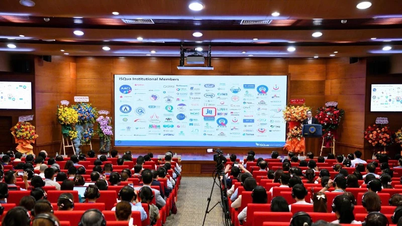



















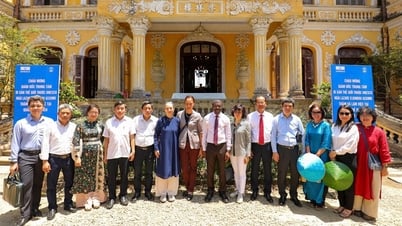





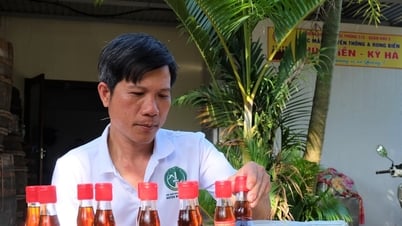

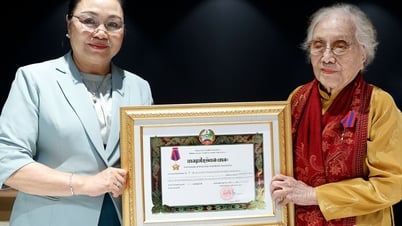



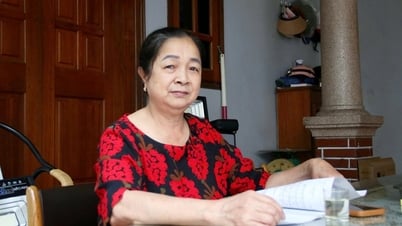







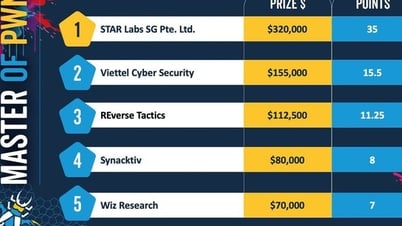





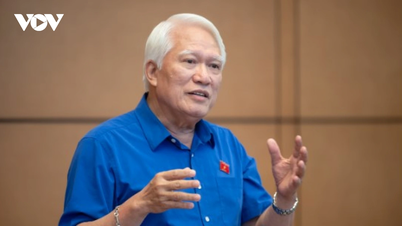






















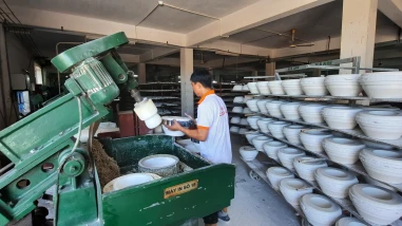







![[Podcast] Week introducing more than 500 OCOP products in Hanoi](https://vphoto.vietnam.vn/thumb/402x226/vietnam/resource/IMAGE/2025/5/22/d144aac2416744718388dbae3260e7fd)



Comment (0)